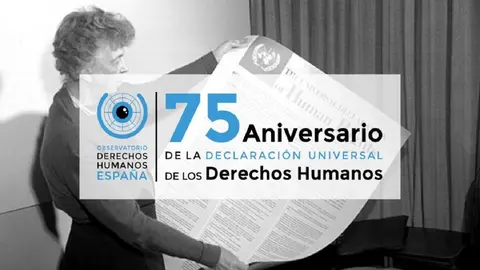The Role of Women in the Universal Declaration of Human Rights
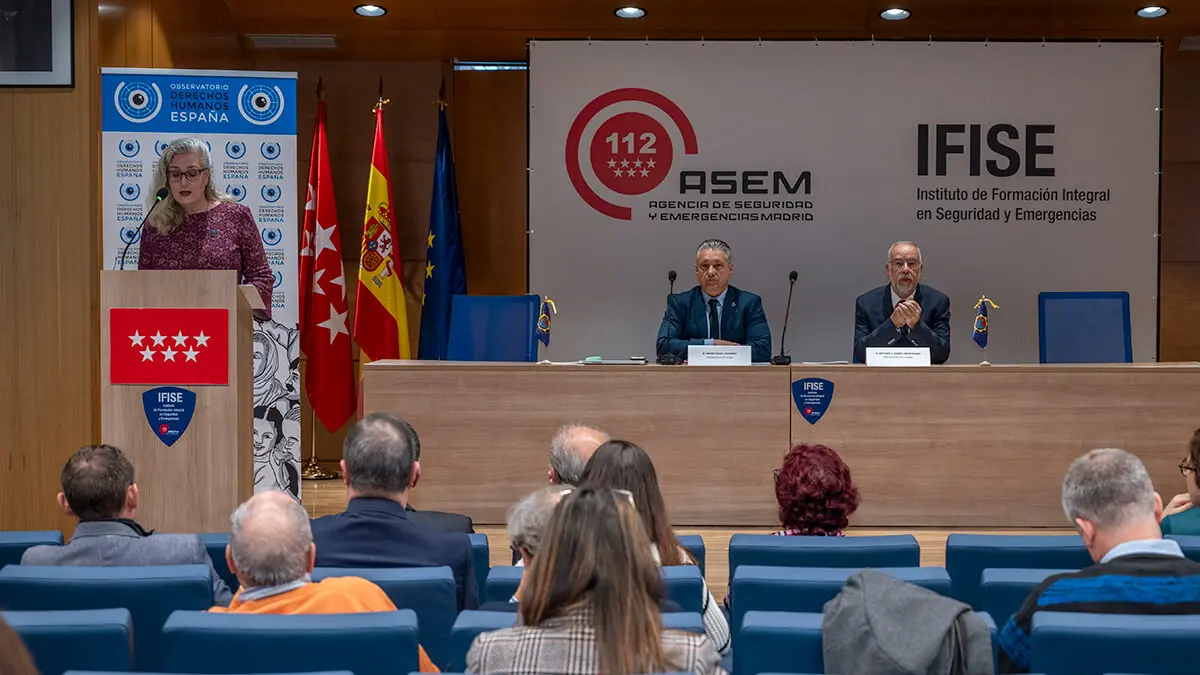
On 10 December 1948, the Universal Declaration of Human Rights was signed in Paris. On the occasion of its 75th anniversary, the ODHE and IPA Spain organised an emotional event in which the women who participated in the drafting of this essential text, led by Eleanor Roosevelt, played a special role.
The event, held at the headquarters of the Instituto de Formación Integral en Seguridad y Emergencias (IFISE), a collaborating entity together with the newspaper El Español and the Academy of Diplomacy of the Kingdom of Spain, was led by the substitute magistrate of the High Court of Justice of Madrid, Concepción Morales Vállez, who praised the importance of this anniversary and the role played by eleven women so that "the text signed 75 years ago is the text of today".
This meeting began with the signing of the agreement between the ODHE and the IPA by their presidents, Mario Rigau Oliveras and Antonio Gómez Montejano, respectively. Next, Cruz Sánchez de Lara Sorzano, vice-president of the newspaper El Español, spoke about the "Current Horizon of Human Rights", but from the perspective of women, "as we make up 52% of the world's population", she pointed out.
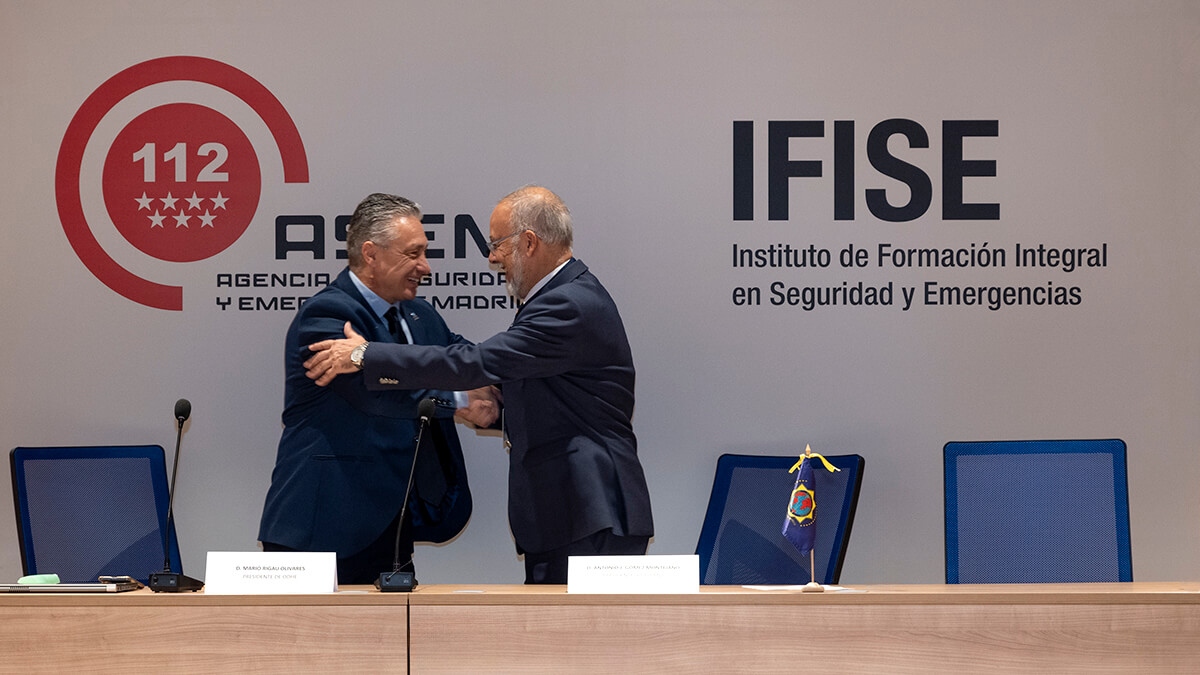
Sánchez de Lara made her speech a tribute to the eleven women who took part in the drafting of the Universal Declaration of Human Rights in 1948 when "they had much less visibility". A document, she recalled, that is the most translated and published document.
The speaker alluded to the moment of polarisation that we are living in, in which extremism is using the word feminism to mean that there are two different sides, when this is not the case, and quoted the words of Mary Wollstonecraft: "I do not want women to have power over men, but over themselves".
She spoke of Eleanor Roosevelt, chair of the Human Rights Commission that drafted the aforementioned Declaration, of her great commitment in the United States and her fight not only for inequality, but also for the defence of the most vulnerable, but she did not forget Hansa Mehta, Minerva Benardino, Marie-Helène Lefaucheux, Begum Shaista, Lakshmi Menon, Evdokia Uralova, Fryderyka Kalowski, Bodgil Begtrup, Isabel de Vidal and Bertha Lutz, Begum Shaista, Lakshmi Menon, Evdokia Uralova, Fryderyka Kalinowski, Bodgil Begtrup, Isabel de Vidal and Bertha Lutz and the contribution that each of them made in defence of non-discrimination on the grounds of sex, freedom, education, equal pay, marriage, inclusive language....
"We are what we are because others were what they were," said the speaker, adding that the names of the eleven women who contributed to the Declaration and their recognition should be made clear.
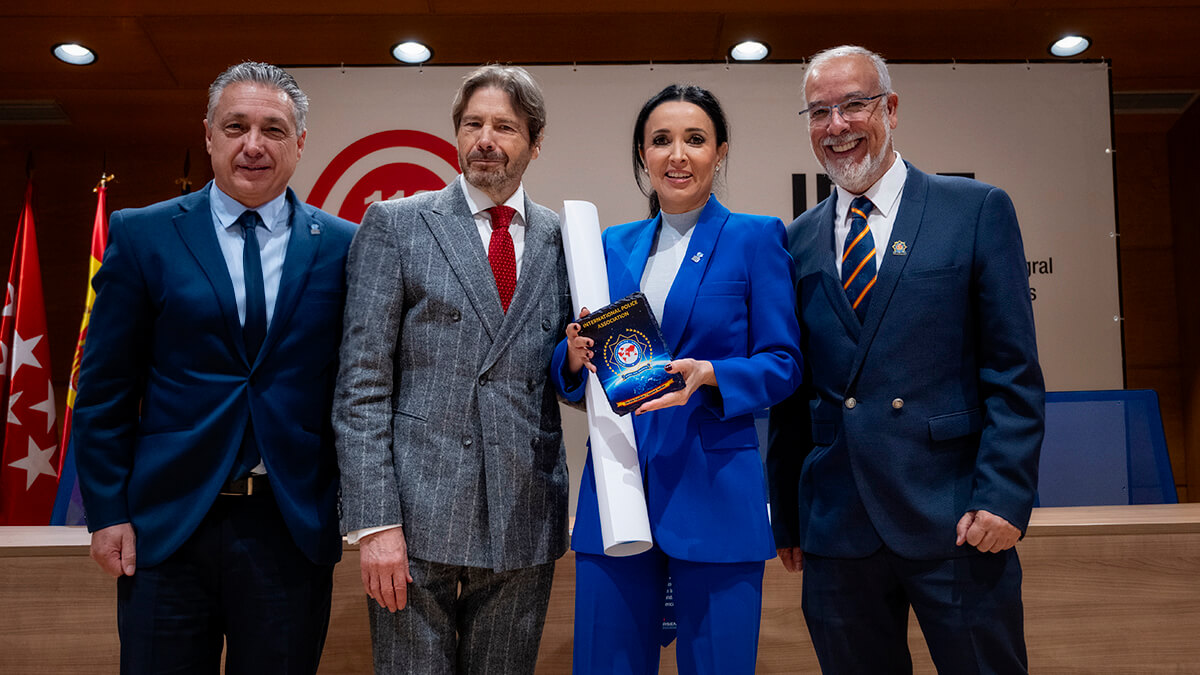
Before concluding, she recalled the people who fight for fundamental rights, advocated the need to move towards equal constitutional rights for all and warned that we cannot take it for granted that we have a consolidated right, because it can be violated at any moment. "All the democracies that accompany us are the bastion that must make us fight against dictatorships, which is why acts like this are so important," said Sánchez de Lara, who concluded by saying that listening and helping others are the way to be happy. "We are not going to change the world, but we can make someone's life better.
Sophia McIntyre, Australia's ambassador to Spain, also took part in this event and expressed her satisfaction and gratitude and praised the importance of this Declaration in these times we live in, with major conflicts, climate change, the 2030 objectives and the great challenges we must face.
The ambassador explained the agreement signed between Australia and Tuvalu, a small Pacific country with a population of 11,200, which is facing a major crisis that could, in the worst case scenario, lead to its disappearance. The 10 November agreement has four lines of action: it provides climate refuge for Tuvalu's citizens; it allows them to live, study and work in Australia; it promotes security; and it provides support for needs such as infrastructure. "It is an unprecedented agreement for Australia to safeguard Tuvalu's future," said the ambassador, who insisted on the great threat posed by climate change.
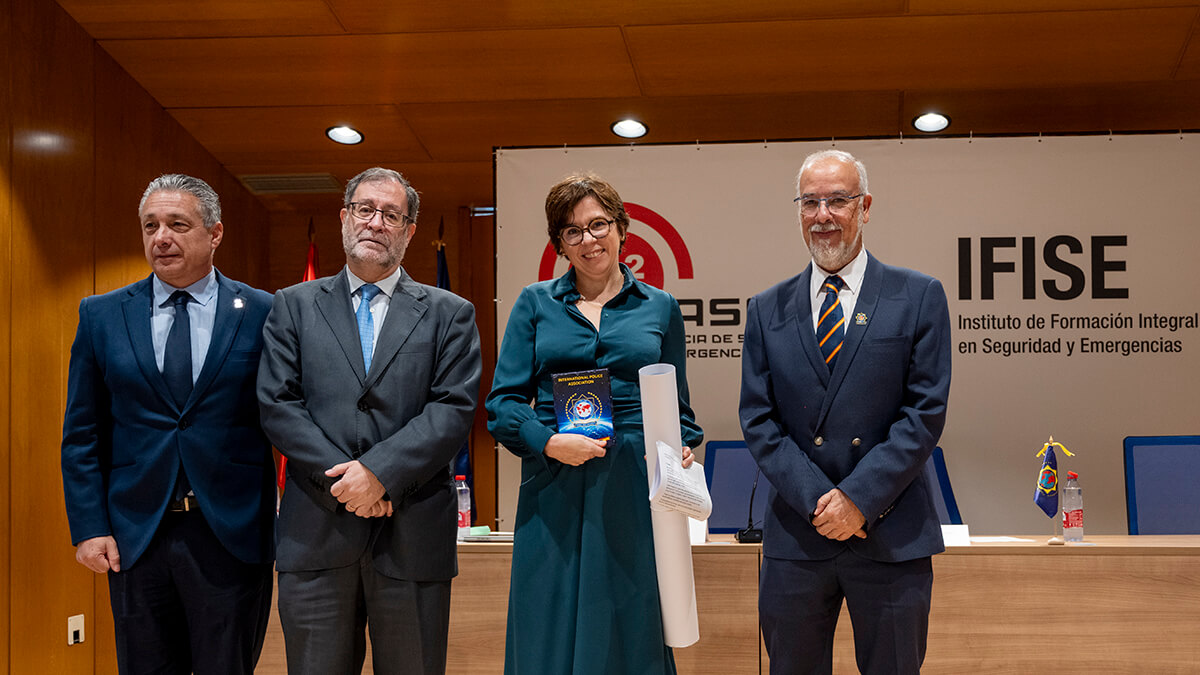
For his part, Santiago Velo de Antelo, President of the Academy of Diplomacy of the Kingdom of Spain, after recalling that today, 12 December, is Neutrality Day for the United Nations, and the importance of this neutrality for the strengthening of humanitarian aid, for example, pointed out the important progress made, but did not want to forget the existing challenges such as discrimination, inequality, poverty, intolerance... and the duty to continue working.
But the president of the Diplomacy focused on something "little talked about": religious persecution. According to the World List of Persecution, 5,621 Christians were killed for their faith in 2021, said Velo de Antelo, who also referred to the study "Persecuted and Forgotten" and offered other data such as jihadists and nationalists causing the increase in the persecution of Christians, the 7,600 Nigerians killed for being Christians or the increase in attacks on churches.
On the other hand, he spoke of the School of Salamanca as the predecessor to the Declaration of Universal Rights, as it reformulated Natural Law, one of the conclusions being that all men share the same nature and the same rights, "this in the 16th century was totally revolutionary", affirmed the diplomat, who defined the city of Salamanca as "the cradle of Human Rights".
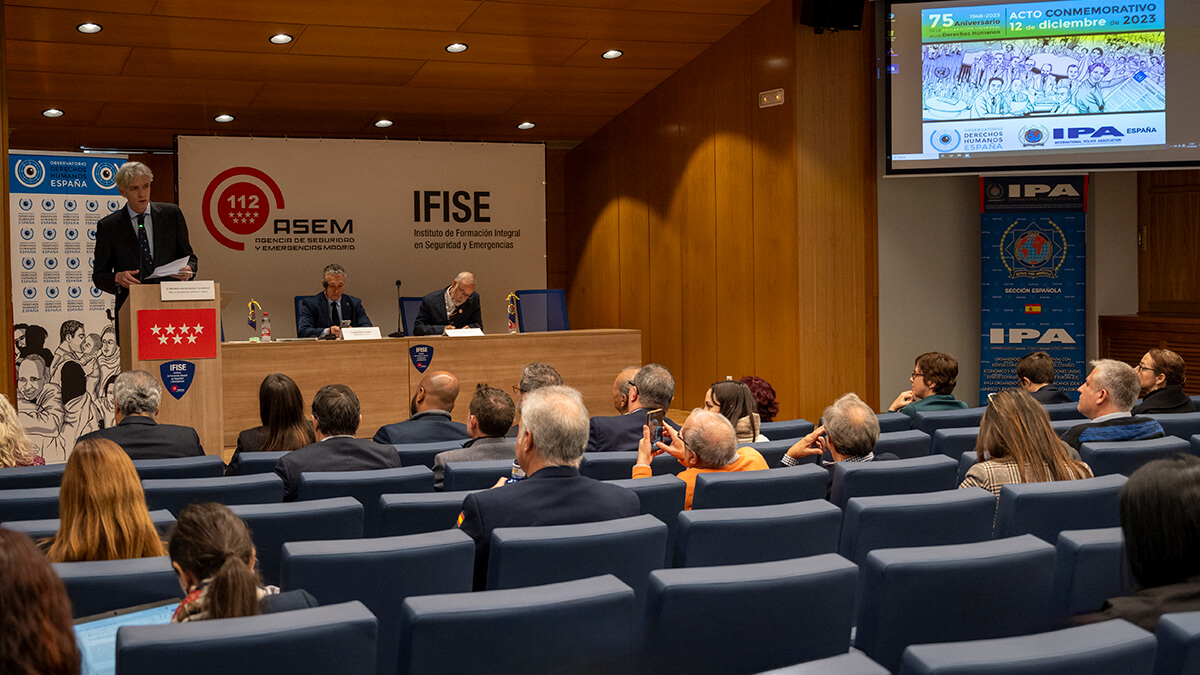
The closing address was given by Antonio J. Gómez Montejano, president of IPA Spain, who explained that the organisation he presides over has some 400,000 members in 70 countries, that it has the support of IFISE, where its headquarters are located, and that its aims are linked to human rights. "It is an association of a friendly nature with objectives aimed at training police officers, promoting friendship, communication, hobbies, leisure... within the framework of the defence of peace, security and human rights".
The words of thanks from Mario Rigau Oliveras, president of the ODHE, closed this commemoration, but not before explaining that exploring, identifying and highlighting actions in human rights are the objectives of the Observatory that was born in 2021 with the Catalejo Awards, and whose third edition will be held in Malaga next year along with a conference on "Artificial Intelligence and Human Rights".
Before concluding, he referred to the threats of those who want there to be a world disorder, "this is a challenge that we face as citizens at a global level", for this reason, he defended the need to give collective responses to these threats, and advocated the urgent need to give greater weight to diplomats. "The resolution of conflicts does not depend so much on great proclamations, but on the discreet work of diplomacy", said the ODHE president.
And with a reminder of the great example set by the drafters of the Universal Declaration of Human Rights, people of different ideologies, countries, cultures, religions, etc., and the wish that "solidarity may triumph", the commemoration was brought to a close.
As an emotional souvenir, the speakers and representatives of the different embassies that participated in the aforementioned declaration received an exclusive and numbered illustration by the designer Kico F. Uribe of the period before and after the adoption of the Universal Declaration of Human Rights.


